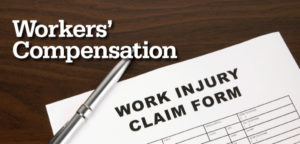There are four types of insurance that most small businesses purchase. The first is property insurance. This type of coverage provides compensation if business property is damaged, stolen or lost. In addition to covering the physical business structure, property insurance covers personal property. This includes inventory, office furnishings, raw materials, computers, machinery and other items that are part of business operations. Property insurance coverage doesn’t end with protecting physical assets. It also affords operating funds when business owners must take steps to get their business back on track following major loss. Property insurance may provide coverage for broken equipment in some cases. It may also provide coverage for water damage, debris removal following a fire and several other specific items.
Business vehicle insurance is the second type of coverage many small businesses purchase. Anyone who uses their own personal vehicle for business purposes should discuss this type of coverage with their agent. Most personal vehicle insurance policies don’t provide coverage if the automobile that is involved in an accident is used mostly for business purposes. Business auto insurance policies afford coverage for vehicles that are owned and used by a business. Third parties injured by the policyholder’s vehicle receive compensation for damages up to the policy limit amount. Some policies may provide compensation for repair or replacement of vehicles that are damaged from flooding, theft, accidents and similar events.
Liability Insurance
The third type of coverage most small businesses purchase is liability insurance. This is because any business may face a lawsuit at some point in today’s litigious society. For example, a person may claim that a business caused them harm from a service error, defective product or negligence in providing a safe environment. Liability coverage provides compensation for damages a company is liable for. However, the coverage is only provided up to the policy’s limit amounts. These policies usually also provide funds for legal defense expenses, attorneys’ fees, medical bills and several other related expenses.
Workers compensation is the fourth type of insurance purchased by many small businesses. In nearly every state, employers are required by law to have workers compensation coverage if they have employees. This number usually varies from three to five, and even if a business has less than three employees, it is still wise to purchase this coverage. Workers compensation pays for a portion of lost wages for workers who are injured. In addition to this, it also covers the medical care they require. Coverage is provided to employees who are injured at work regardless of who is at fault. If workers die as a result of the injuries they sustain, the insurance company compensates the surviving family members of the deceased worker.
In addition to the four major types of coverage purchased, there are several other valuable policies some companies may want to purchase. Umbrella policies, terrorism coverage and specialized liability policies are all helpful. Umbrella policies, much like an umbrella, cover above and beyond the normal inclusions. These are usually obtained to prevent high losses by businesses with high risks. Specialized liability policies are made up of several types of individual coverage. It’s best to speak with an agent about these options. Terrorism coverage provides compensation for damages and medical care to a certain extent in the event of terrorism.
The Andrew Agency
The Andrew Agency, an independent insurance broker, serves clients in Virginia, Maryland and D.C. If you have questions about business insurance, workers compensation or umbrella insurance contact us at 804.320.2886 or [email protected].












